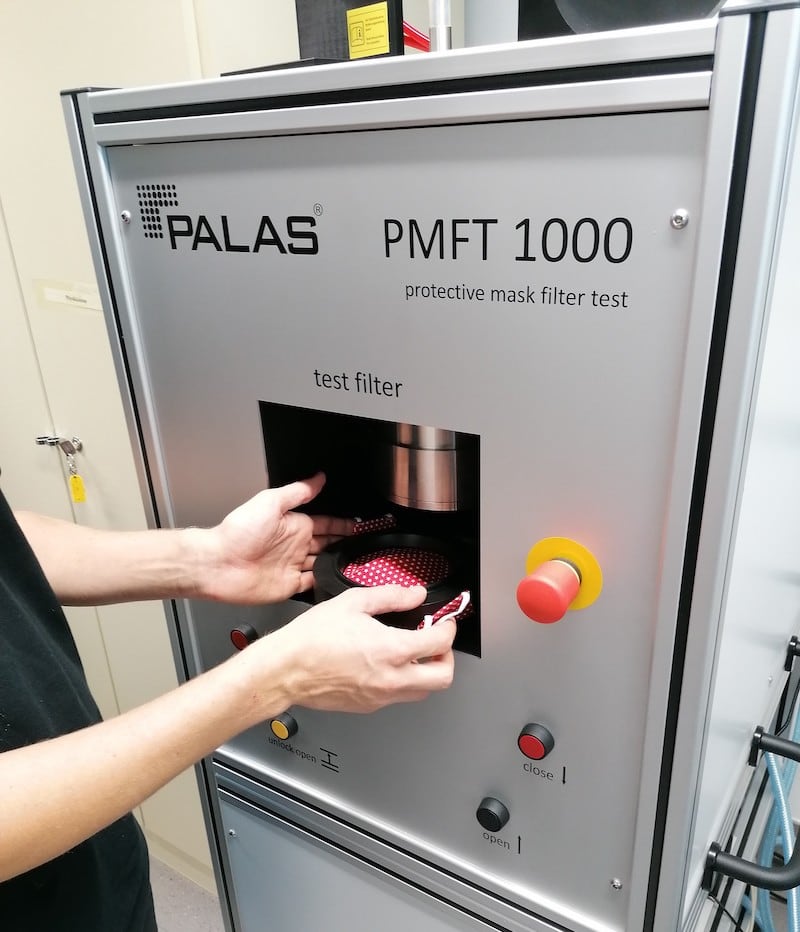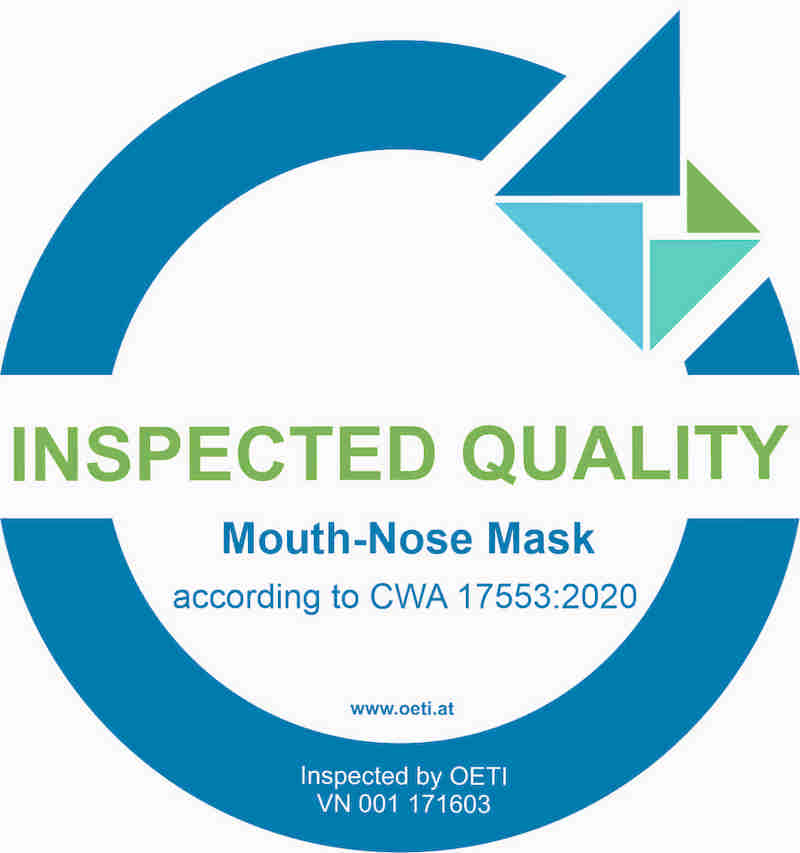New label for mouth and nose masks (community masks)
With “INSPECTED QUALITY for MOUTH-NOSE MASKS”, OETI has recently started offering a reliable product labelling, which also supports companies with their product development.
With the label “INSPECTED QUALITY for MOUTH-NOSE MASKS” masks are tested for functionality and harmful substances. The label is based on the specifications of the Workshop Agreement CWA 17553.
The agreement is a guideline for minimum requirements as well as testing and application methods of “community masks”. It was issued in June 2020 by the independent European Committee for Standardization (contains 34 CEN member states).
OETI thus provides business customers and consumers with a reliable label, which is based on the security of an independent workshop agreement drawn up by an external body.
Challenges in the production process
OETI’s experience in testing community masks has shown that for the two most important product properties, filtration efficiency and breathability, only 10% of the masks tested currently meet all requirements.
It is therefore important to test every single development phase to ensure that the final product meets the requirements. A new development is time consuming and expensive. Furthermore, the necessary test equipment is expensive.
OETI’s know-how in the development process
OETI therefore tests the various stages of the development process for business customers to ensure that the right choice of materials and the processes used in the manufacture of the masks can be made.
A major advantage is that parts of the product that have already been tested during the development process and proven to meet the requirements do not need to be tested again. Depending on the type of certification, pre-certified parts of the product are also recognized (e.g. STANDARD 100 by OEKO-TEX®).
What is tested and what type of masks are tested?
“INSPECTED QUALITY FOR MOUTH-NOSE MASKS” establishes, on the one hand, certain criteria for the protection of the wearer against harmful substances. Secondly, it helps to reduce oral transmission by preventing the virus from entering the nose or mouth through contaminated hands. Finally, the mask, tested according to CWA 17553, helps to reduce the risk of infecting others by speaking, sneezing and coughing.
The certification includes functional tests such as breathability or shrinkage and tests for harmful substances such as formaldehyde and prohibited arylamines.
The labelling applies to all disposable and reusable masks that are not covered by the regulations on protective equipment or medical devices.























